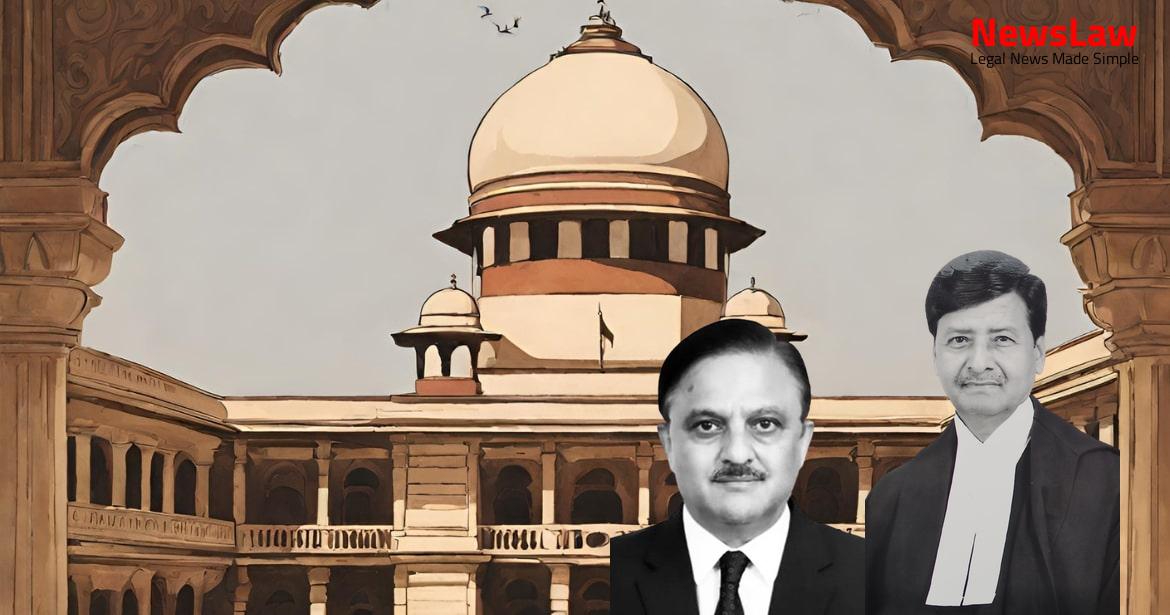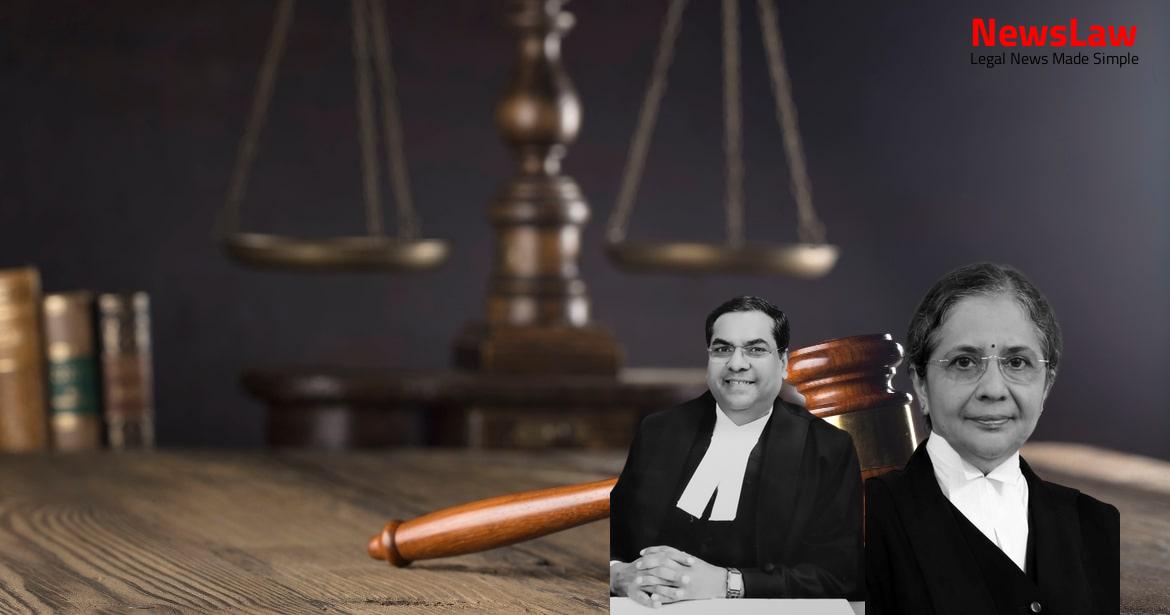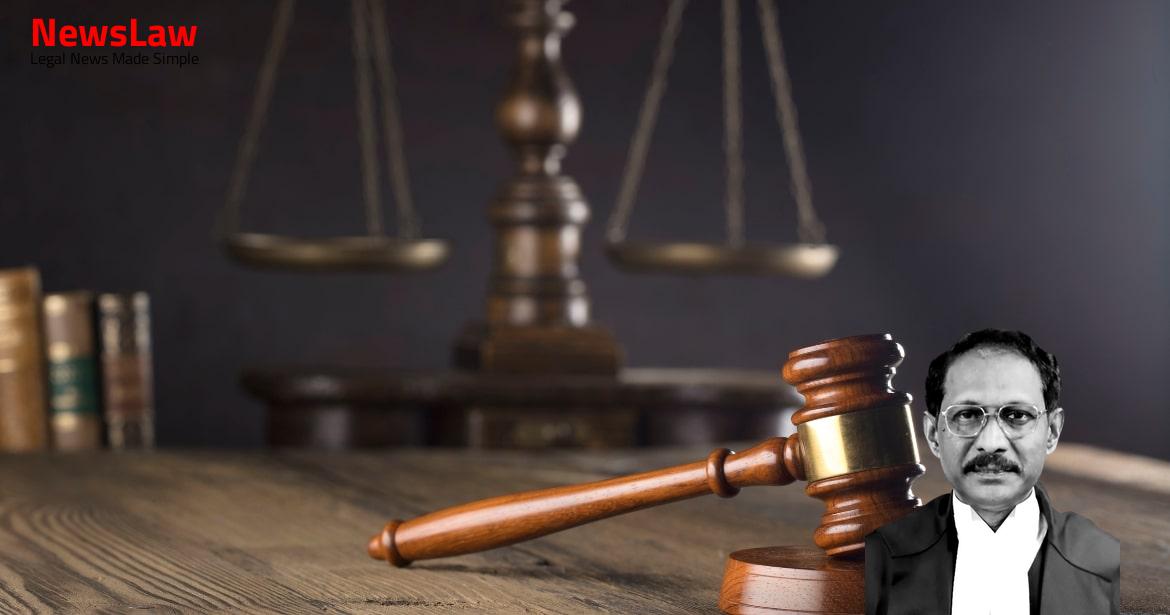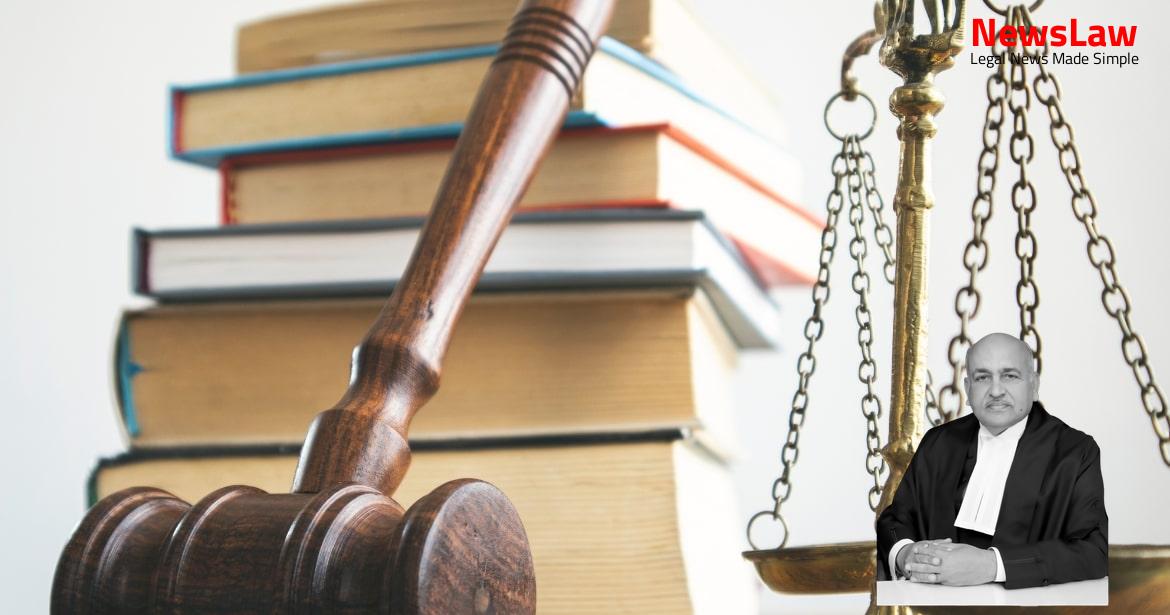Explore the intricate legal analysis carried out by the Court in a recent case involving disciplinary action. The Court’s detailed examination focused on the nature of penalties, the discretion of disciplinary authorities, and the parameters guiding punishments for misconduct within the force. This blog delves into the nuanced legal considerations underlying the Court’s decision, shedding light on the complex intersection of disciplinary proceedings and judicial review.
Facts
- Constable/Driver Ram Karan made false allegations against Dr. Nazir of sexual abuse to save himself and gain public sympathy.
- On 12.9.03, Ram Karan and his wife entered the doctor’s room where an altercation occurred.
- Ram Karan was found guilty of misbehaving, abusing, and injuring the doctor on official duty.
- He was also charged with falsely accusing the doctor of sexual harassment against his wife.
- Ram Karan was suspended and faced disciplinary proceedings under Rule 27 of CRPF Rules 1955.
- Despite appeals, he was ultimately removed from service for his misconduct.
- The High Court substituted the penalty of removal with confinement in quarter guard jail, which is now being challenged in this appeal.
- The High Court substituted the penalty of removal from service with confinement in quarter guard jail from 1.00 p.m. to 10.00 p.m. as a more appropriate punishment.
- The High Court directed for the respondent’s immediate reinstatement with entitlement to salary and benefits for pension calculations.
- The High Court upheld the charges found proved by the disciplinary authority during the inquiry in its judgment dated 11 February, 2016.
- The Supreme Court issued notice and stayed the operation of the High Court’s judgment dated 11 February, 2016.
Also Read: Recovery of Misappropriated Temple Funds: Court’s Legal Analysis
Arguments
- Ms. Madhavi Divan, representing the Union of India, argues that the High Court overstepped its limited scope of judicial review under Article 226 by interfering with the disciplinary action taken against the respondent in CRPF.
- She contends that the misconduct committed by the respondent was grave and unpardonable, and the High Court’s perception as if it were a criminal trial is not applicable to a departmental inquiry.
- The High Court’s substitution of punishment in the judgment is deemed unsustainable and should be overturned.
- Ms. Divan highlights the oversight of Section 11 of the Act 1949 by the High Court, which provides for various punishments including confinement in quarter guard jail or removal.
- She references the case of Union of India and Others Vs. Ghulam Mohd. Bhat to support her arguments.
- Mr. Ashok Agrwaal, counsel for the respondent, supported the High Court’s finding.
- The respondent had 11 years of unblemished service at the time.
- He respected Dr. Nazir despite the circumstances beyond his control.
- The High Court found the removal from service as disproportionate to the charges proved.
- The High Court considered the respondent’s rights and family while substituting the punishment.
- The High Court’s judgment is seen as doing justice and may not need intervention by the Supreme Court.
Also Read: Legal Analysis in Assault and Homicide Case
Analysis
- The court emphasized that the nature of the penalties imposed on members of the force for misconduct is outlined in Section 9 and Section 10 of the Act 1949.
- The Court emphasized that removal and dismissal from service are viewed similarly as they both terminate the employer/employee relationship.
- The Court highlighted that in cases where the penalty imposed is shockingly disproportionate, the disciplinary authority should be directed to reconsider the penalty.
- The Court reiterated that the judicial review of disciplinary actions should be limited and should not substitute the decision of the competent authority.
- The Court specified that in cases where co-delinquents face different levels of punishment for similar charges, a doctrine of equality should be followed.
- The Court noted that in the case of civil service employees, disciplinary matters are governed by their respective service rules.
- The Court highlighted the difference between dismissal and removal in terms of future employment opportunities in the government.
- The Court recommended a lesser punishment for the petitioner based on the circumstances of the case, suggesting confinement from 1.00 PM to 10.00 PM in a quarter guard jail as sufficient.
- Punishments can be inflicted on non-Gazetted Officers and men of various ranks by designated authorities under specific conditions.
- Dismissal from the Force precludes re-employment in Government service, while removal does not disqualify for future employment.
- Departmental enquiry must be conducted for non-gazetted officers or men before imposing penalties.
- The procedure for conducting a departmental enquiry includes framing written charges and allowing for cross-examination of witnesses.
- Minor punishments can be awarded in addition to suspension or dismissal for misconduct by a member of the Force.
- The competent authority may award one or more punishments under Section 11 of the Act 1949.
- Authorities mentioned in Section 11 have the power to award suspension or dismissal in addition to other specified punishments.
- Minor and major penalties can be imposed on Government servants for disciplinary reasons as per Rules 1965.
- Disciplinary authority and appellate authority have the exclusive power to consider evidence and maintain discipline.
- The quantum of punishment after proving misconduct is the domain of the departmental authorities.
- Courts cannot take over the function of disciplinary authorities to decide the punishment.
- Departmental authorities have the discretion to impose suitable punishment based on the gravity of the misconduct.
- If misconduct is proven, removal or dismissal from service can be imposed on the civil servant after a disciplinary enquiry.
- The punishment will depend on the gravity and nature of the misconduct.
- The major penalties for misconduct are outlined in Part IV of the Rules 1965.
Also Read: Legal Analysis on Invalid Sale Deeds and Power of Attorney
Decision
- Petitioner entitled to salary and benefits during period of dismissal until reinstatement
- Respondents directed to treat the period from dismissal to reinstatement as per law
- Dismissal should not be a disqualification for future government employment
- Disciplinary matters for minor punishments governed by Section 11 of Act 1949
- More heinous offenses punishable with imprisonment under Act 1949
- Dismissal and removal from service considered minor punishments under Act 1949
- Competent authority may award punishments for disobedience, neglect of duty, or misconduct
- High Court’s interference in punishment quantum not applicable to disciplinary force
- High Court’s interference in substituting punishment deemed unsustainable
- Appeal allowed, reinstatement of petitioner ordered with immediate effect
- Impugned judgment quashed and set aside, petitioner on duty for pension benefits
- No costs, pending applications disposed of
Case Title: UNION OF INDIA Vs. EX. CONSTABLE RAM KARAN (2021 INSC 715)
Case Number: C.A. No.-006723-006723 / 2021



